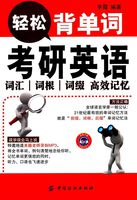但是我在这儿说的最重要的是:你们在问那些问题——不仅是问我,而是在问你们自己。你们正在选择人生的道路,同时也在对自己的选择提出质疑。你们知道自己想过什么样的生活,也知道你们将走的道路不一定会把你们带到想去的地方。这样其实很好。某种程度上,我倒希望这是我们的错。我们一直在标榜人生,像镜子一样照出你们将来的模样,思考你们怎么可以过得幸福,探索你们怎样才能去做些对社会有价值的事:这些也许是文科教育可以给你们“装备”的最有价值的东西。文科教育要求你们要活得“明白”。它使你探索和定义你做的每件事情背后的价值。它让你成为一个经常分析和反省自己的人。
而这样的人完全能够掌控自己的人生或未来。从这个道理上讲,文科——照它的字面意思——才使你们自由。(英语里文科是Liberal Art,照字面解释是自由的艺术)学文科可以让你有机会去进行理论的实践,去发现你所做的选择的价值。想过上有价值的,幸福的生活,最可靠的途径就是为了你的目标去奋斗。不要安于现状得过且过。随时准备着改变人生的道路。记住那些我们寄予你们的“过于崇高”的期待,可能你们自己也承认那些期待是有点“太高了”。不过如果想做些对于你们自己或是这个世界有点价值的事情,记住它们,它们将会像北斗星一样指引着你们。你们人生的价值将由你们去实现!
我都等不及想看看你们将来都会怎样。毕业以后,常回“家”看看,让我们了解你们的情况。
导读
这是哈佛2007年2月11日宣布,并于7月份正式上任的校长Drew G. Faust给哈佛大学2008年的本科毕业生做的演讲。Drew G. Faust是哈佛历史上第一位女性校长。她自2001开始在哈佛的Radcliffe学院任教。之前的哈佛校长因为公开发表“歧视女性”的言论被迫辞职。
单词注解
horrify [5hCrifai] v.使恐惧,使惊惧
figurative [5fi^jurEtiv] adj.比喻的;象征的
intriguingly [in5tri:ginli] adv.有趣地;有魅力地
prestigious [7pres5ti:dVEs] adj.有名望的,有威信的
supremely [sju:5pri:mli] adv.至上地;崇高地
诵读名句
I think of this as my parking space theory of career choice,and I have been sharing it with students for decades.
You are choosing roads and at the same time challenging your own choices.
I can’t wait to see how you all turn out. Do come back,from time to time,and let us know.
第一章 Bill Gates Harvard Commencement Speech
比尔·盖茨在哈佛毕业典礼上的演讲
Bill Gates/比尔·盖茨
President Bok,former President Rudenstine,incoming President Faust,members of the Harvard Corporation and the Board of Overseers,members of the faculty,parents,and especially,the graduates:
I’ve been waiting more than 30 years to say this:“Dad,I always told you I’d come back and get my degree.”I want to thank Harvard for this timely honor. I’ll be changing my job next year...and it will be nice to finally have a college degree on my resume. I applaud the graduates today for taking a much more direct route to your degrees. For my part,I’m just happy that the Crimson has called me“Harvard’s most successful dropout.”I guess that makes me valedictorian of my own special class ... I did the best of everyone who failed.
But I also want to be recognized as the guy who got Steve Ballmer to drop out of business school. I’m a bad influence. That’s why I was invited to speak at your graduation. If I had spoken at your orientation,fewer of you might be here today.
Harvard was just a phenomenal experience for me. Academic life was fascinating. I used to sit in on lots of classes I hadn’t even signed up for. And dorm life was terrific. I lived up at Radcliffe,in Currier House. There were always lots of people in my dorm room late at night discussing things,because everyone knew I didn’t worry about getting up in the morning. That’s how I came to be the leader of the anti-social group. We clung to each other as a way of validating our rejection of all those social people.
Radcliffe was a great place to live. There were more women up there,and most of the guys were science-math types. That combination offered me the best odds,if you know what I mean. This is where I learned the sad lesson that improving your odds doesn’t guarantee success.
One of my biggest memories of Harvard came in January 1975,when I made a call from Currier House to a company in Albuquerque that had begun making the world’s first personal computers. I offered to sell them software.
I worried that they would realize I was just a student in a dorm and hang up on me. Instead they said:“We’re not quite ready,come see us in a month,”which was a good thing,because we hadn’t written the software yet. From that moment,I worked day and night on this little extra credit project that marked the end of my college education and the beginning of a remarkable journey with Microsoft.
What I remember above all about Harvard was being in the midst of so much energy and intelligence. It could be exhilarating,intimidating,sometimes even discouraging,but always challenging. It was an amazing privilege—and though I left early,I was transformed by my years at Harvard,the friendships I made,and the ideas I worked on.
Members of the Harvard Family:Here in the Yard is one of the great collections of intellectual talent in the world.
What for?
There is no question that the faculty,the alumni,the students,and the benefactors of Harvard have used their power to improve the lives of people here and around the world. But can we do more? Can Harvard dedicate its intellect to improving the lives of people who will never even hear its name?
Let me make a request of the deans and the professors—the intellectual leaders here at Harvard:As you hire new faculty,award tenure,review curriculum,and determine degree requirements,please ask yourselves:
Should our best minds be dedicated to solving our biggest problems?
第一章 Peace in the Atomic Age (4)
Should Harvard encourage its faculty to take on the world’s worst inequities? Should Harvard students learn about the depth of global poverty ... the prevalence of world hunger... the scarcity of clean water... the girls kept out of school ... the children who die from diseases we can cure?
Should the world’s most privileged people learn about the lives of the world’s least privileged?
These are not rhetorical questions—you will answer with your policies.
My mother,who was filled with pride the day I was admitted here—never stopped pressing me to do more for others. A few days before my wedding,she hosted a bridal event,at which she read aloud a letter about marriage that she had written to Melinda. My mother was very ill with cancer at the time,but she saw one more opportunity to deliver her message,and at the close of the letter she said:“From those to whom much is given,much is expected.”















